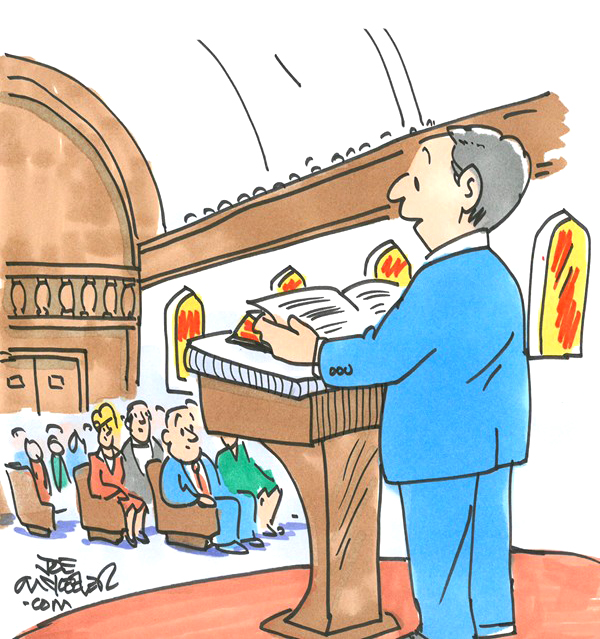 [1]
[1]Editor’s note: The following is an excerpt from Albert Mohler’s upcoming book [2] “Prophet, Priest, & King.”
Christ’s miracles had prophetic significance to His disciples. This aspect of His prophetic ministry is evident in John 6, which recounts a series of events which reveal that Christ’s very actions serve to fulfill His messianic office. A survey of these accounts demonstrates the prophetic character of Jesus’ incarnation and life. As the Chalcedonian Creed (AD 451) rightly affirms, Jesus is both truly God and truly man; His acts inherently represent God and declare God’s message to the people.
Jesus’ feeding of the 5,000 at the beginning of the chapter demonstrates His prophetic care for God’s people. After prompting His disciples to seat a large crowd, He took up five barley loaves and two fish from a boy among the multitude. Then He gave thanks, multiplied the bread and fish, and handed out a surplus so great that no one among the vast throng went hungry. The disciples even gathered up 12 baskets of leftovers after the meal (John 6:12-13), and this miraculous event did not go unnoticed.
As the Passover approached (John 6:4), the people of Israel would have observed the connections between God’s provision for them through Moses and Jesus’ even greater work. Just as Moses’ intercession brought food in the wilderness (Exodus 16, Numbers 11), so Jesus miraculously provided sustenance. His actions were indicative of His status as a messianic prophet. Moses interceded to God on behalf of the people, and God subsequently supplied the food. In Jesus’ miracle however, this crowd had eaten because Jesus supplied the meal Himself. Amazed by Christ’s miraculous provision, the people concluded that Jesus “is indeed the Prophet who is to come into the world!” and they sought to make Him king (John 6:14-15). They saw Him working the works of God and fulfilling the expectations of the messianic prophet, and they moved to crown Him as their sovereign. As Jesus knew His full identity was not yet to be revealed, He quickly departed the scene, continuing to demonstrate His prophetic role, day by day with His disciples.
Christ walking on water to His disciples on the Sea of Galilee (John 6:16-19) is reminiscent of Moses splitting the Red Sea (Exodus 13-15). Jesus displayed an absolute and personal authority over creation. Moses defied the Egyptians and delivered his people because God had empowered him with sanction over the waters. Now, the waters obey Jesus’ authority, upholding His every step. The divine creator – incarnate in human flesh – walks on His own creation. Even in His might, Christ exhibits prophetic care for the disciples, representing God in human flesh before them. Even His response to the disciples, “It is I. Don’t be afraid.” (John 6:20), recalls the great I AM of Exodus 3:14 and Moses’ extraordinary encounter with Him. “God replied to Moses, ‘I AM WHO I AM.’” And He said, “This is what you are to say to the Israelites: I AM has sent me to you.’” (Exodus 3:14)
Throughout the Gospel of John, a succession of “I am” statements demonstrate Christ’s fulfillment of His prophetic office by revealing His identity and attributes. He is the bread of life, (John 6:35), the light of the world (John 8:12, 9:5), the door of the sheep (John 10:7), the good shepherd (John 10:11,14), the resurrection and the life (John 11:25), the way, the truth and the life (John 14:6), and the true vine (John 15:1), and each aspect serves to fill out His divine identity and His messianic purpose.
In John 6, Jesus declares, “I am the bread of life.” As the crowd followed Jesus, He said to them, “Truly I tell you, you are looking for me, not because you saw the signs, but because you ate the loaves and were filled.” (John 6:26). Jesus knows that this crowd now seeks Him out because they want another meal, so He exhorts them not to “work for the food that perishes but for the food that lasts for eternal life, which the Son of Man will give you, because God the Father has set his seal of approval on him.” (John 6:27). In other words, by coming to Jesus looking simply to fill their stomachs, they look for the wrong kind of bread. They were satisfied all too easily. The crowds recognized Jesus’ prophetic fulfillment in feeding the 5,000, but they did not see that in this act, He also prefigured His infinitely greater work of atonement to come.
From the beginning of John’s Gospel, John has presented Jesus as a prophet like Moses but one with a greater and final fulfillment of the prophetic office. Moses brought forth God’s instruction, but Jesus incarnates and brings forth God’s grace and truth (John 1:17). Now, Jesus delivers God’s message of grace and truth that He, Himself, is the bread of life. When Jesus says this, He makes a clear claim to deity reflective of a passage like Exodus 3:13-14. As the Father fed His people in the wilderness, He now gives His Son such that all who partake of this heavenly manna experience the new and greater exodus. All who share in the Son find eternal life, but they must listen to His prophetic word. They must come and believe His Gospel message.
From the beginning of this Gospel, John intends that his readers make a decision regarding belief in Christ. John writes: “In the beginning was the Word”(John 1:1), and that the Word is the one who “became flesh and dwelt among us”(John 1:14). The one who was with God, was God, and through whom all things were made (John 1:1-2). All such truths are crucial to understanding and receiving Jesus’ message of good news. If Jesus is the bread of life, belief in Him is required for eternal fellowship with God.
John 6:40 contains language similar to John 3:16, that verse so familiar to us. Those within earshot must now heed the will of the Father and listen to God’s anointed prophet who Himself feeds God’s people. The prophet of God regularly speaks to a rebellious, grumbling people who have ignored God’s message. Just as many complained against Moses, Elijah, Jeremiah, and others, when the messianic prophet issued His proclamation, “the Jews started grumbling about him because he said, ‘I am the bread that came down from heaven.’ They were saying, ‘Isn’t this Jesus the son of Joseph, whose father and mother we know? How can he now say, ‘I have come down from heaven’?” (John 6:41-42). The Bible classifies grumbling as one of the worst and most subversive of sins. The children of Israel in the older generation grumbled in the wilderness, and that led them to God’s judgement and a state of perpetual wandering in the wilderness until they died. Because of this, Jesus’ answer, “Stop grumbling among yourselves,” demonstrates the seriousness of His statement (John 6:43). Rejecting Christ as the bread of life is a rejection of God Himself. To reject Jesus and His ministry is to be like the wilderness generation once again.






